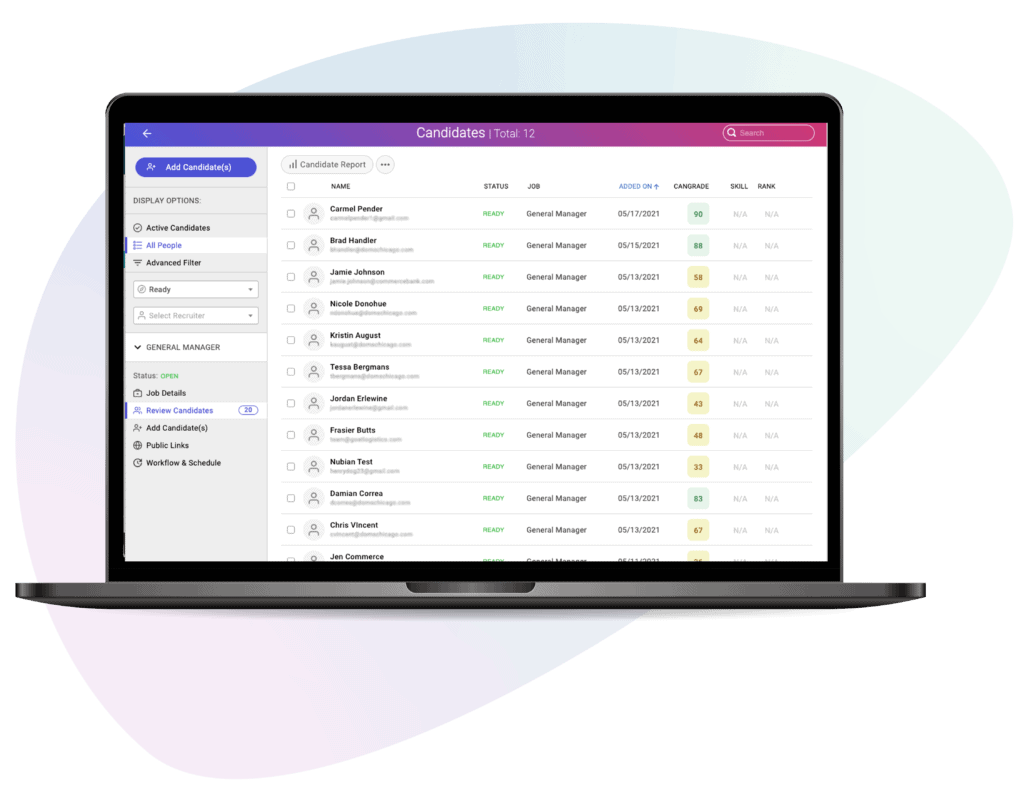3 Reasons to Use Hiring Assessments
The idea of hiring automation can seem disturbing. Do we really want to put important processes and decisions in the hands of a machine?
But the truth is that automation often doesn’t replace people. Instead, some parts of a job are automated—the boring, stressful, and repetitive ones. This gives people more time and energy to focus on the parts of the job they do best.
Hiring employees with automated assessments.
Do we really want to replace talent acquisition professionals with machines? Not really.
Automating the first step of the hiring process—the most boring, stressful, and repetitive part—allows them to spend more time and energy focusing on the parts of the job they do best. Here’s why you should start using hiring assessments.
1. Hiring assessments are better than résumé screening and phone screening
Screening can be labor-intensive and time-consuming.
Reading through a high volume of résumés can take hours…or you might have to go way too fast. One study found an average of 6 seconds spent reading each résumé! Either way, you probably don’t have the time and attention to read each one as carefully as you might like.
And the time spent calling a high volume of candidates—often just to confirm basic information—is time that could probably be spent on something more productive.
What if we can predict the most promising candidates first?
Then we can start at the top of the list (with the most likely to succeed) and work our way down until the positions are filled.
More time and attention to talk with the most promising candidates. More time and attention to actually read their résumés.

2. Hiring assessments lead to better job interviews
Interviews are important for several reasons.
They can be used to confirm basic information, and to assess candidates. They can also be used to showcase your unique employer brand and convince the best candidates that they want to come work for you.
But the standard practice is to create a “short list” (often based on earlier screening) and then interview everyone on the list.
What happens when we have to conduct so many interviews? Information overload.
Even if we avoid the most common interview mistakes, a high volume of interviews still tends to undervalue great candidates that come later in the day, and leads interviewers to rush and make snap judgments before collecting enough information.
And if the “short list” is too short, you might not even have enough candidates to fill the positions!
What if we can predict the most promising candidates first?
We can start at the top of the list with the candidates our hiring assessment identifies as most likely to succeed and work our way down until the positions are filled.
Less pressure to rush and make snap judgments. More time and attention for each candidate.
And no need to start over from scratch if the first “short list” of candidates don’t work out.
3. Hiring assessments mean faster decision speed
The best candidates won’t be kept waiting.
They want you to read their résumé now. They want to talk to you now. They want to come in for an interview ASAP.
If you wait too long, they will reject your job offer.
85% of employers say that competing for talent is their single greatest challenge.
Fortunately, when you can automatically predict the most promising candidates up-front with a hiring assessment, you can get back to them almost immediately.
This changes the timetable for résumé screening, phone screening, and job interviews.
You can do these things for the most promising candidates right away.
A job offer can be made and accepted in a much shorter period of time…
…while your competitors are probably still busy sifting through a pile of résumés.